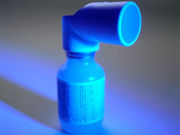Reductions seen in short-term symptom scores and medication scores, with evidence of publication bias
FRIDAY, June 2, 2017 (HealthDay News) — Administration of allergen immunotherapy (AIT) in patients with allergic asthma leads to lower short-term symptom and medication scores, according to a review published online May 19 in Allergy.
Sangeeta Dhami, M.B.B.S., from Evidence-Based Health Care in Edinburgh, U.K., and colleagues performed a systematic review to examine evidence on the effectiveness, cost-effectiveness, and safety of AIT. Data were reviewed from 98 studies.
The researchers observed a reduction in short-term symptom and medication scores, with evidence found for publication bias. No reduction was seen in short-term combined medication and symptom scores; a beneficial long-term effect was seen in one study. Subcutaneous immunotherapy correlated with improved quality of life and reduction in allergen-specific airway hyperreactivity (AHR); this was not seen for sublingual immunotherapy (SLIT). No consistent effects were seen on asthma control, exacerbations, lung function, or non-specific AHR. There was a modest increase in the risk of adverse events with AIT. Evidence on cost-effectiveness was mainly available for SLIT, which was likely to be cost-effective.
“AIT can achieve substantial reductions in short-term symptom and medication scores in allergic asthma,” the authors write. “More data are needed in relation to secondary outcomes, longer-term effectiveness, and cost-effectiveness.”
Several authors disclosed financial ties to the biopharmaceutical industry.
Copyright © 2017 HealthDay. All rights reserved.








